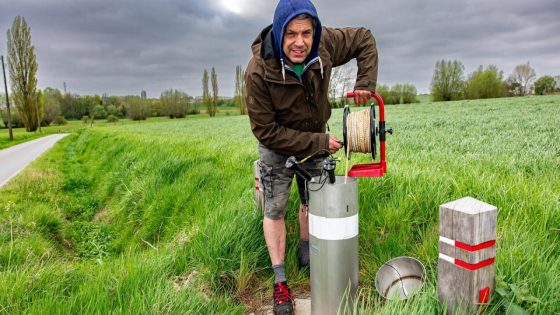The groundwater levels in Belgium are alarmingly low for this time of year, as of April 16, 2025. Kris De Wit (56) tirelessly measures these levels across West and East Flanders, emphasizing the importance of his work.
- Monitor groundwater levels to assess drought impact.
- Utilize automated measurements for efficient data collection.
- Recognize the importance of seasonal rainfall patterns.
- Advocate for rainwater retention and management strategies.
- Understand consequences of low groundwater on agriculture.
- Conduct manual checks to ensure measurement accuracy.
What Are the Consequences of Low Groundwater Levels in Belgium?
Low groundwater levels can have significant repercussions for both agriculture and the environment. As noted by experts, prolonged dryness threatens crop yields and can lead to higher food prices. Additionally, various species depend on stable groundwater levels for survival. Key impacts include:
- Crops struggling to grow due to insufficient water supply.
- Increased costs for consumers as food prices rise.
- Nature suffering from habitat loss affecting biodiversity.
The future hinges on consistent rainfall patterns. It’s crucial for individuals and policymakers alike to recognize the importance of sustainable water management practices. Together, we must act now to safeguard our groundwater reserves against further depletion.






















